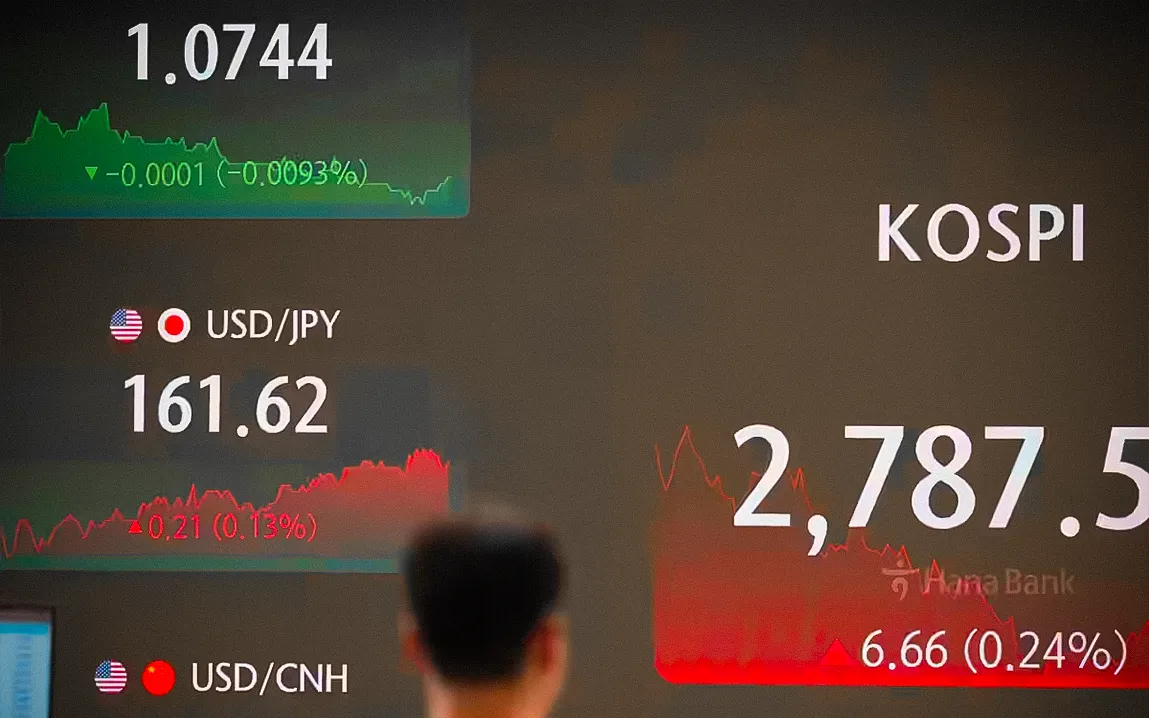Asian markets mimicked a recent downfall on Wall Street and this downfall was largely led by technology-based companies. The tech stocks in Asia plunged after a selloff across American technology exchange funds such as Nvidia and Apple. The general market tone remains somewhat risk-averse, as international investors await monetary statistics that will affect monetary authorities’ decisions.
Impact on Major Asian Markets
Tokyo’s Nikkei 225 fell 1.8%, primarily affected by the drop in tech stocks, including chipmaker Tokyo Electron and Lasertec Corp., which saw losses of 9.8% and 13.4%, respectively. The decline aligns with reports from ASML, a major semiconductor equipment provider, which highlighted slower-than-expected recovery outside of AI-driven markets. Similarly, South Korea’s KOSPI dropped 0.4%, with major electronics firms like Samsung Electronics pulling back after weaker profit outlooks.
Hong Kong’s Hang Seng also faced challenges, falling by 1% due to tech stocks losing ground. However, the Shanghai Composite edged up slightly by 0.1% as investors responded to gaming sector developments and regulatory updates in China. These fluctuations illustrate a divided regional response, with Chinese markets showing resilience despite broader Asian losses.
Global Influences: Wall Street’s Pullback and Oil Prices
Wall Street’s recent pullback has weighed heavily on Asian markets. The S&P 500 fell by 0.6%, led by declines in major tech stocks, which impacted global markets. Nvidia, a prominent player in AI technology, saw a 4.5% drop as investors expressed concerns over the sustainability of the AI rally. Additionally, regulatory discussions about chip export restrictions further added to the tech sector’s volatility.
Oil prices, another critical factor, have also influenced the market. With crude oil dropping over 4% due to concerns over China’s economic slowdown, energy stocks contributed to Wall Street’s losses, setting the stage for a similar reaction in Asian energy markets. However, early Wednesday trading saw a slight recovery in oil prices, offering some stability.
Market Outlook and Investor Sentiment
The general trends in the US inflation and Federal Reserve actions are of great concern to investors because they determine global economic policy and market conditions. The next quarterly earnings of other technology companies such as Taiwan Semiconductor Manufacturing Co. are also expected because they will give more details on the physical health of the market for semiconductor firms.
In general, a decline in the tech industry and an unpredictable situation with global interest rates remain a problem for Asian markets. Experts believe that any indications of stability of the economy in the United States or more actions by China’s government to boost its economy may turn market trends to the positive in the next few weeks.




